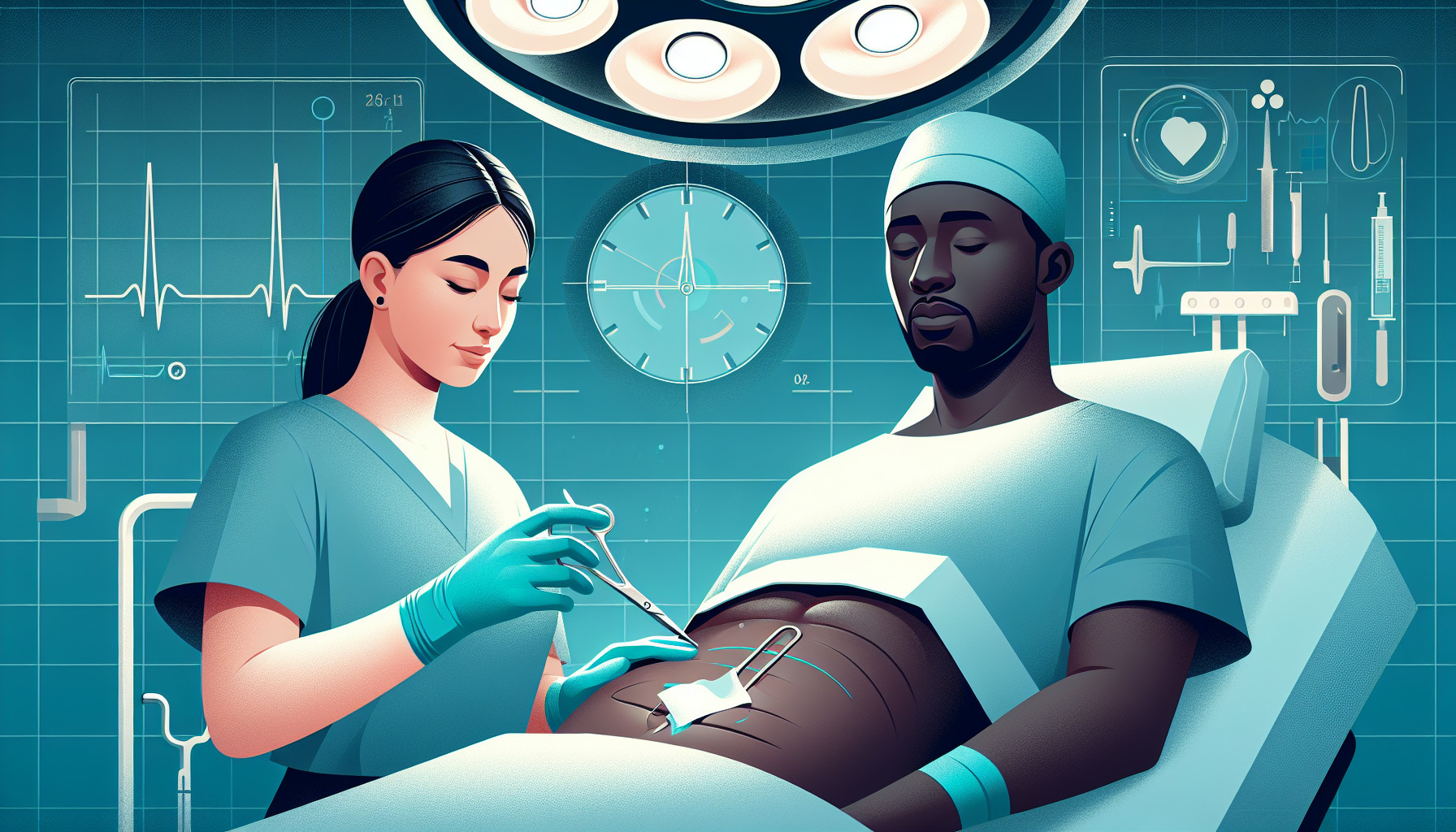Our Summary
This study looked at the rate of recurrence of a painful gut condition called diverticulitis after a surgical procedure (elective sigmoid resection) done to treat it. The surgery is done in hopes of improving the patient’s quality of life. The researchers studied patients who had the surgery and then had at least three years of follow-up.
Out of 232 patients, 20 (or about 9%) had a recurrence of diverticulitis, confirmed by CT scan, after surgery. None of these recurrences were severe enough to require another surgery. Most of the recurrences happened in patients who had a history of uncomplicated diverticulitis, those who had at least 4 episodes of the condition, and those whose condition affected the descending colon.
The researchers found that recurrence was associated with diverticulitis of the sigmoid and of the descending colon, a pre-surgery diagnosis of Irritable Bowel Syndrome (IBS), and having diverticular disease for longer than 5 years. However, these factors could not be proven to be risk factors for recurrence.
In simpler terms, this study found that patients with IBS, a long history of diverticulitis, and the condition affecting the descending colon are more likely to have the condition return after surgery. However, more research is needed to confirm these findings.
FAQs
- What is the rate of recurrence of diverticulitis after elective sigmoid resection surgery?
- What factors were found to be associated with the recurrence of diverticulitis after surgery?
- Did any of the patients who experienced a recurrence of diverticulitis require another surgery?
Doctor’s Tip
A helpful tip a doctor might tell a patient about diverticulitis surgery is to continue following a healthy diet and lifestyle post-surgery to reduce the risk of recurrence. This may include eating a high-fiber diet, staying hydrated, exercising regularly, and avoiding foods that can trigger flare-ups. It is also important to attend follow-up appointments with your healthcare provider to monitor your condition and address any concerns.
Suitable For
Generally, patients who are recommended diverticulitis surgery are those who have recurrent episodes of diverticulitis that are not responding well to conservative treatment, those who have complications such as abscesses, fistulas, or strictures, those who have severe symptoms that significantly impact their quality of life, and those with a high risk of complications or recurrence. It is important for patients to discuss their individual case with their healthcare provider to determine if surgery is the best option for them.
Timeline
Before diverticulitis surgery, patients may experience symptoms such as abdominal pain, fever, nausea, and changes in bowel habits. They may undergo diagnostic tests such as a CT scan or colonoscopy to confirm the diagnosis. Treatment may involve antibiotics, pain medications, and a liquid or low-fiber diet.
After surgery, patients may experience pain, bloating, and fatigue as they recover. They will need to follow a specific diet, gradually increasing their fiber intake, to prevent complications. They will also need to take pain medications and antibiotics as prescribed by their healthcare provider. Follow-up appointments will be scheduled to monitor their recovery and address any concerns.
In the long term, patients may need to make lifestyle changes such as maintaining a healthy diet, staying hydrated, and exercising regularly to prevent a recurrence of diverticulitis. They should also continue to have regular check-ups with their healthcare provider to monitor their condition and address any new symptoms.
What to Ask Your Doctor
Some questions a patient should ask their doctor about diverticulitis surgery include:
- What are the risks and benefits of undergoing elective sigmoid resection for diverticulitis?
- How likely is it that my diverticulitis will recur after surgery?
- Are there any factors that increase my risk of recurrence, such as having IBS or a long history of the condition?
- What symptoms should I watch out for that may indicate a recurrence of diverticulitis?
- Are there any lifestyle changes or dietary modifications I should make to reduce my risk of recurrence?
- What is the recommended follow-up care after surgery to monitor for recurrence?
- If my diverticulitis does recur, what treatment options are available to me?
- Are there any alternative treatments or medications that may help prevent a recurrence of diverticulitis?
- How long is the recovery process after surgery, and what can I expect in terms of pain and limitations?
- Are there any specific activities or foods I should avoid after surgery to reduce my risk of recurrence?
Reference
Authors: Giulio M, Gaia S, Andrea C, Giacomo C, Angela P, Dario M, Isacco M. Journal: Int J Colorectal Dis. 2022 Oct;37(10):2149-2155. doi: 10.1007/s00384-022-04248-x. Epub 2022 Sep 1. PMID: 36048197
